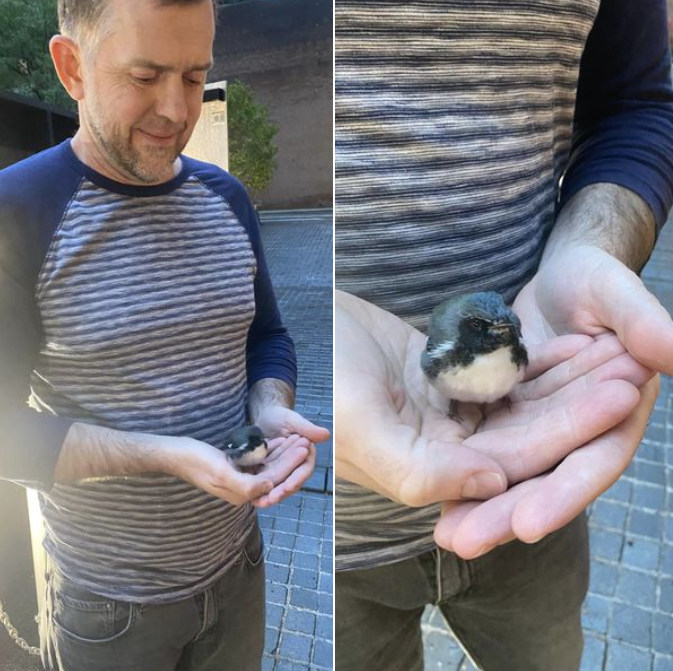
Welcome to the Film Lab’s 20th Annual 72 Hour Shootout. It’s incredible to think this competition has been going strong for two decades, although the fact that it has managed to stay so relevant means the problems to was created to solve haven’t yet been solved. I was thinking about this and why the Shootout is still so important at an event I was at not too long ago - an induction ceremony for the women’s hall of fame. One of the speakers mentioned students were asked to name inventors. They rattled off the names of white men. When asked if they could name women, they were stumped. Women of color? Crickets. In actuality, there are so many women inventors, from Dr. Patricia Bath, a Black woman, who was the pioneer of laser cataract surgery, to Anna Williams, who discovered how to produce the antitoxin for diphtheria. Have any of you heard of Patricia Bath or Anna Williams? And there are so many more. Unseen. Unsung. Underrepresented people who, throughout history, have accomplished great things and yet are nearly invisible from mainstream recognition. Our ignorance of this multitude of names and accomplishments lays out in stark terms the near complete and total erasure of the accomplishments of underrepresented groups in our society from mainstream media. So, what are we going to do about it? There are two schools of thought at opposite ends of the spectrum. Some people will tell you to break down the doors and to take your seat at the table by force, demanding whatever you can get without apology. Others will say no, you need to work ten times as hard and “beat them at their own game.” However, neither of these two schools of thought are really what the Film Lab or the 72 Hour Shootout stand for and I’d like to tell you a personal story to illustrate why. Two of my grandparents were born into affluent banking families in Shanghai, China. As was the custom at that time for wealthy families, they went to college overseas. My grandparents came to tour the country as wealthy tourists and then to study, one at Columbia and one at NYU. Then, the Communist Revolution happened and their families in China were divested of their money and property. Some were imprisoned, some died, some fled the country. My grandmother’s father got a message out to her, saying it wasn’t safe and, under no circumstances, to come home. Like the opposite of a fairy tale, my privileged grandparents found themselves suddenly impoverished and without anything but the clothes they had packed and each other. My grandfather, with his banking background and his finance studies, got a job on the floor of the New York Stock Exchange and did very well until, one day, his boss went to him and said, “Hey, Andy. I’m sorry but we have to take you off the floor; you’ll have to work in the back.” Stunned, my grandfather asked why and how he could possibly do his job off the floor. “It’s not me, Andy,” his boss replied. “I know you’re great. It’s the other guys. They don’t want to see a Chinese on the floor.” Now, this was the 1940’s and my grandfather could have just doubled down and worked ten times as hard to beat them at their own game or tried to fight it through force though, certainly at that time, he likely would not have succeeded, and bash the doors down, as it were, but he did neither of those things. He stood up very straight and quit his job on the spot, saying he would not work where he was not respected. He knew his worth. He walked out with his head high and never returned. He knew his worth. Now, it might have seemed like he lost because he took another, much less prestigious job – albeit one without obvious racism – but he was still a brilliant player on the market and now he had only himself and his family to work for and he did very well for them. He changed the rules of the game, created his own game. He made his own house with his own door and to hell with everyone else’s. He knew his worth. I tell you this to remind you that these storied institutions and awards – from the New York Stock Exchange to the Oscars - are only as valuable and important as we the people make them. The game is only as valid as the legitimacy given it by the players. Worth isn’t stomping in and grabbing everything you can; demanding without earning. Worth is understanding who you are, what you can do and having the courage to do it. Worth is sharing your power with others who lack it. If you’ve watched the Shootout films from the two decades, you’ll see filmmakers from nearly every ancestry, sexuality, gender, and religion imaginable. That is because we are all about forging cross racial coalitions to rise together, recognizing the struggles of other underrepresented groups. We recognize if one person or one group is not equal, then none of us our. We can either support one another and rise together or we can become B-level oppressors, which is boring. And nobody wants to be boring. As you look through our library of films, you will also see the most represented group in our society – maybe our world – white men. And they are welcome, too. The men supporting and working on the Shootout films understand the concept that Peggy McIntosh, a feminist activist, articulated when she explained that, as a white person who is born into power and privilege by virtue of her skin, she had a moral imperative to use her “unearned power to give power, to share power” with others not born to it. THAT is worth. And, taking us full circle, back to the Film Lab and the 72 Hour Shootout, this is our means of searching out and amplifying the perspectives of all of you – and us – who have been silenced by the mainstream. Erased from the history books like those inventors we talked about earlier. Yes, you can win network mentorships and screen tests through the 72 Hour Shootout, which can get you a very valuable seat at the existing table. You can also bypass the table and make your own door, your own house, your own story. And we, at the Film Lab, will amplify it. We will shout your stories from the rooftops. We will recognize your worth. The fact you are here, ready not just to compete, but ready to collaborate and to share in a collective creative power, means YOU already recognize your worth. And that, my friends, is everything. Thank you and good luck.
https://youtu.be/MmQ76iN3KSE















 RSS Feed
RSS Feed
